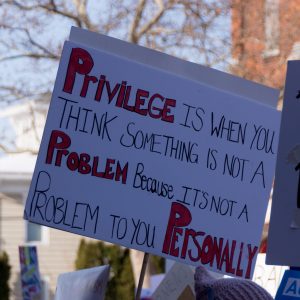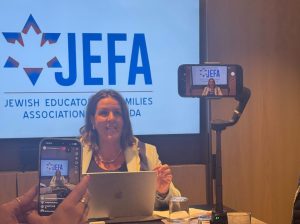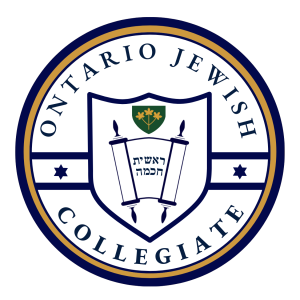 When Paul Socken first started developing a Jewish studies program at the University of Waterloo 10 years ago, he had one mantra: if you build it, they will come.
When Paul Socken first started developing a Jewish studies program at the University of Waterloo 10 years ago, he had one mantra: if you build it, they will come.
Paul Socken and James Diamond
“And that’s what happened,” said Socken, who teaches French Canadian literature at UW. “The interest I knew would always be there. The question was could we get it started?”
In 1993, Socken was approached by Brian Hendley, then dean of arts at UW, with the idea to start a Jewish studies program at the university.
“Back in the early 1990s, neo-Nazis were coming in [to Kitchener] to fundraise,” Socken said.
In response to this, Trinity United Church hosted a rally for the Jewish community in Kitchener-Waterloo, which Hendley attended. This is what inspired the idea for a Jewish studies program.
“He was very stirred, very moved. After that, he saw Schindler’s List. The two hit him,” said Socken, “He called me. I didn’t hide the fact that I was Jewish.”
As Socken, a former president of Kitchener’s Beth Jacob Congregation, started building the program, he found that his biggest problem was funding.
“I had to begin the whole process of starting a program. It really was creating something from nothing,” Socken said. “That was the time universities didn’t have money to spend.”
Socken turned to private philanthropists, who always seemed to have one question.
“People would say, ‘Waterloo? Why?,’” he said, adding that, compared with cities such as Toronto, Kitchener-Waterloo had a small Jewish population.
“The uniqueness of Waterloo is the ability to reach out to non-Jewish students. [The Jewish studies program] is important because too often Jews speak to Jews. And that’s very nice, that’s very good, but it’s equally important that the non-Jewish community understand Jewish contributions.”
Socken eventually raised enough money to hold a speaker series that focused on Jewish culture and philosophy. About half of the people who attended the lectures were non-Jews.
As word spread about Socken’s initiative, he was able to raise enough money to start an official program in the religious studies department, which could be taken as a minor, in 2000.
This is where James Diamond came in. Diamond was a lawyer with a PhD in Medieval Jewish thought. But he never planned on teaching.
“I did it for myself,” he said of his PhD. “Law was a profession. That [Jewish studies] I loved.”
Still, when he learned about the new program, he decided to take the leap.
“I figured you don’t get many chances. I applied and I fit the bill.”
When developing the program’s courses, Diamond, who is UW’s Joseph and Wolf Lebovic Chair of Jewish Studies and the program’s only full-time faculty member, made one thing clear.
“Originally, when I got the job, I told them I wouldn’t teach about the Holocaust. People have started to identify Jewish identity with the Holocaust,” he said. “It’s something we didn’t contribute to the world.”
Instead, Diamond wanted to focus on Jewish philosophy and culture, but there was too much of a demand for Holocaust education from the students, so he compromised.
“[I teach] how Judaism has formulated a response to innocent suffering,” he said, adding that about 25 per cent of the content of his courses is about the Holocaust.
Because Diamond teaches many non-Jewish students, he had to tailor the curriculum of the program accordingly, which included exploring the link between Christianity and Judaism.
“I try to cater the courses not as selling religion, but rather as academic courses. I’m not here to make Jews out of you. That’s not my job,” Diamond said. “My job is to inform them and have them really appreciate the central contributions Judaism has made to the world.”
Diamond and Socken, who is retiring this summer, are hoping to expand the program to focus more on Israel. Socken’s goal is to work with universities in Israel to create an exchange program, as well as to create more endowments, which would allow professors to teach courses on contemporary Jewish issues.






